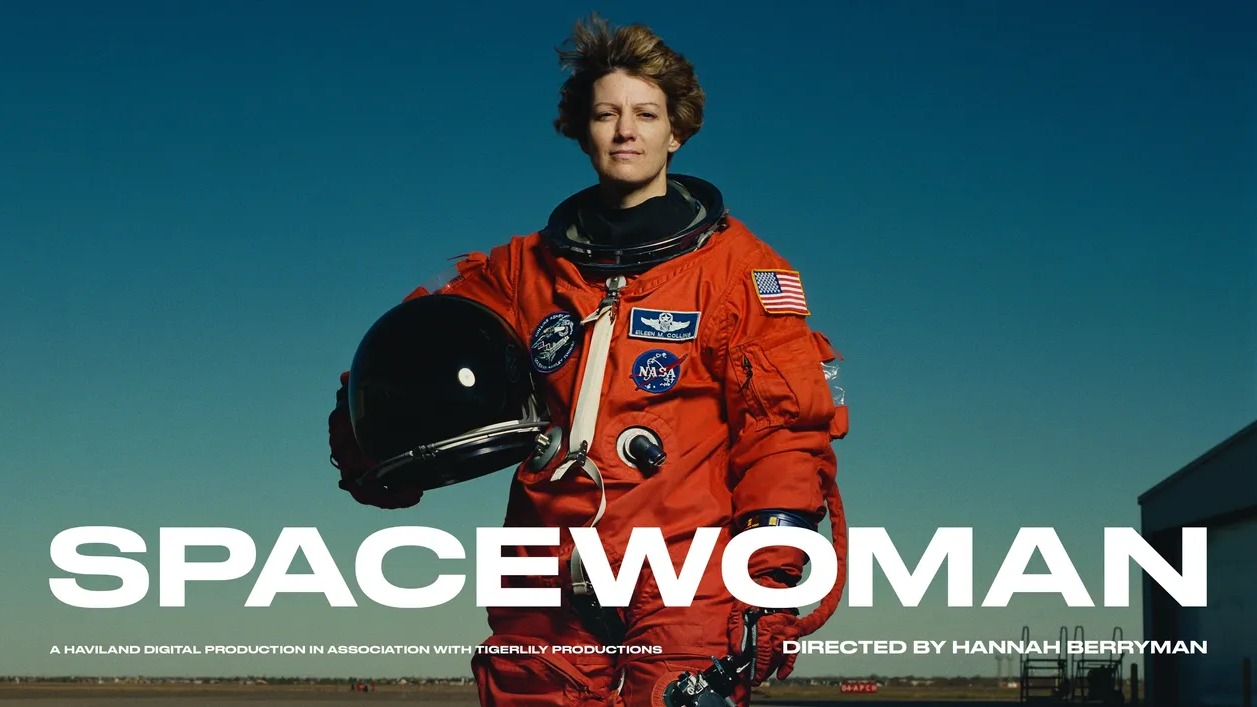New film 'Spacewoman' to celebrate NASA's Eileen Collins, 1st woman space commander and pilot
"It is more than my personal journey through life's challenges."

The first female space commander will be featured in a new documentary.
The story of retired NASA astronaut Eileen Collins will be retold in "Spacewoman," a documentary coming in 2025 based on Collins' memoir "Through the Glass Ceiling to the Stars" (Arcade, 2021) co-written with space historian Jonathan Ward.
Collins, who flew four times in space, served as pilot on two space shuttle missions (STS-63 and STS-84 in February 1995 and May 1997, respectively) and commander of crew on another two spaceflights (STS-93 in July 1999, and STS-114 in July to August 2005).
The memoir, and the movie, recounts how Collins came from an "underprivileged childhood" in Elmira, New York to join the U.S. Air Force, acquiring experience in matters such as test piloting and commanding the C-141 aircraft before being selected as a NASA astronaut candidate in 1990. (Collins retired from NASA in 2006.)
Related: International Women's Day: Female astronauts keep making strides off Earth
The 90-minute documentary will be directed by Hannah Berryman ("Banned! The Mary Whitehouse Story"), and produced by Keith Haviland, Haviland Digital, and Natasha Dack Ojumu on behalf of Tigerlily Productions.
The Emmy-nominated Haviland in particular has produced numerous space documentaries, such as "Chasing the Moon" (2019), "Armstrong" (2019), "Indian Space Dreams" (2019), "Mission Control: The Unsung Heroes of Apollo" (2017) and "The Last Man on the Moon" (2014).
Get the Space.com Newsletter
Breaking space news, the latest updates on rocket launches, skywatching events and more!
The first female and Black astronauts were only recruited in 1978 for NASA, 17 years after the first NASA space mission by Alan Shepard in 1961. Sally Ride then made the first NASA woman spaceflight in 1983. Part of the diversity issue in recruitment came because the military used to be largely made up of white men, and NASA largely drew from the military branches, but that was changing in the decade or so since Collins joined NASA.
Soviet cosmonaut Valentina Tereshkova was the first woman in space during a solo mission in 1963. The milestone mission, however, did not give Tereshkova command over a crew or piloting control of her Vostok spacecraft.
Collins' memoir pays tribute to women who tried to reach space in the generation before her, including the iconic Mercury 13 pilots who participated in space training but were not authorized for missions. Collins invited the seven surviving members of that group to her 2005 launch, she recounted in the book. (Of the Mercury 13, Wally Funk finally reached space in 2021 at age 82, on a private Blue Origin mission.)
"I am enormously excited to be involved with this film project," Collins said in a statement. "It is more than my personal journey through life's challenges. It also includes the thrill of flying jets, my determination to be an astronaut, commanding the space shuttle, and the many relationships I built along the way."
Join our Space Forums to keep talking space on the latest missions, night sky and more! And if you have a news tip, correction or comment, let us know at: community@space.com.

Elizabeth Howell (she/her), Ph.D., was a staff writer in the spaceflight channel between 2022 and 2024 specializing in Canadian space news. She was contributing writer for Space.com for 10 years from 2012 to 2024. Elizabeth's reporting includes multiple exclusives with the White House, leading world coverage about a lost-and-found space tomato on the International Space Station, witnessing five human spaceflight launches on two continents, flying parabolic, working inside a spacesuit, and participating in a simulated Mars mission. Her latest book, "Why Am I Taller?" (ECW Press, 2022) is co-written with astronaut Dave Williams.
-
p3orion Stop beating the " Mercury 13" dead horse! Those women did NOT "participate in training" as you dishonestly state. They underwent SOME of the same physiological tests as the actual astronauts, but that's ALL. They never even met as a group until decades later!Reply
NONE were military test pilots with experience in high-performance aircraft (one of the primary qualifications for the first few NASA astronaut groups); Jerrie Cobb, the most famous of the women, had never even flown a jet!
At the time of the first astronaut selection, no one had ever flown in space The first astronauts would be operating a new and untested vehicle in a completely novel environment. You can argue that the U.S. military was behind the social evolution in not having already utilized women and more minorities in the ranks of its aviation communities, but NASA's insistence on military test pilots was vital, not simply a "straw man" used to screen out all but white males.
I know there are some folks who love to moan "oh how unfair to my particular demographic", but the fact is that there were well-considered requirements for the early astronauts, and there weren't any women who met them.









